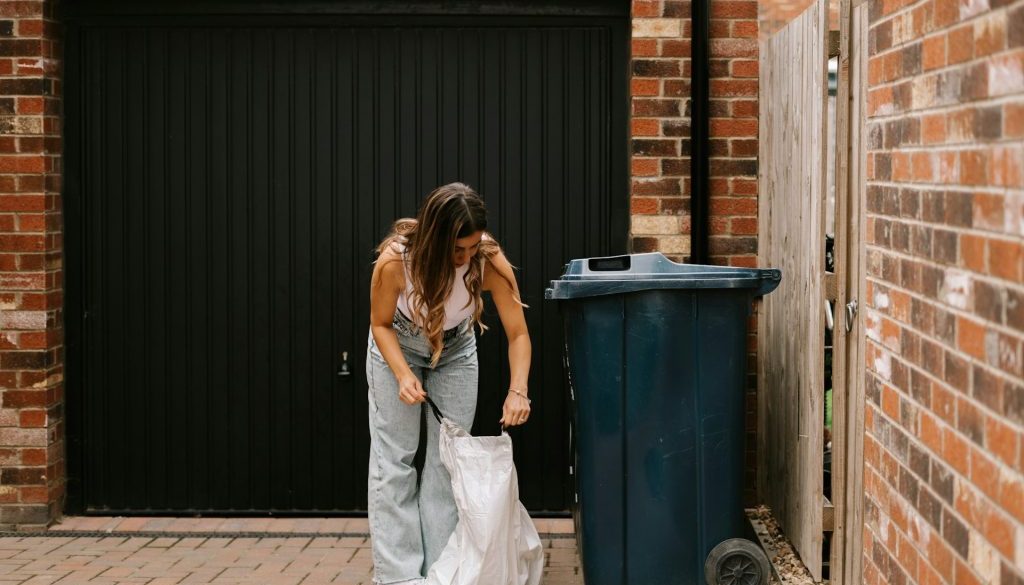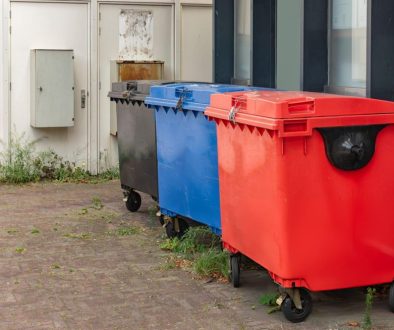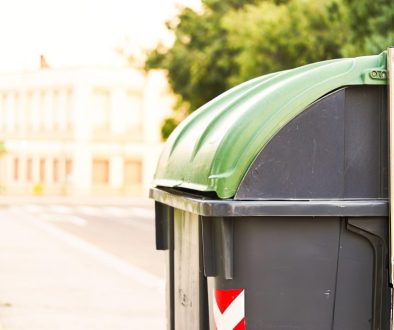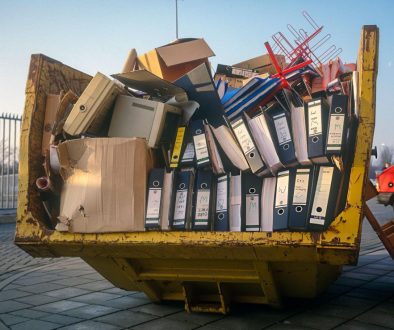Reducing household rubbish is an easy and impactful way to help the environment. With a few simple changes in our daily habits, we can cut down on the amount of waste we produce. This not only makes our homes tidier but also contributes to a greener and cleaner planet.
One way to start is by reusing and repurposing items that would otherwise be thrown away. Many household items can have a second life if we think creatively about their use. For example, old jam jars can be used for storage, and torn clothes can become cleaning rags, reducing the need to buy new products.
Embracing recycling and composting also plays a significant role. Properly sorting recyclable materials and composting organic waste reduce the rubbish that ends up in landfills. Recycling turns waste into useful materials, while composting creates nutrient-rich soil for gardens.
Choosing eco-friendly products and adopting sustainable shopping habits make a big difference too. By selecting products with less packaging and those made from recycled materials, we can reduce waste at the source. Additionally, bringing reusable bags when shopping and buying in bulk helps minimise the waste generated from packaging.
By making these simple changes, everyone can contribute to reducing household rubbish and making the world a better place. Let’s explore these methods in more detail to learn how to implement them effectively.
Reuse and Repurpose Household Items
One of the simplest ways to reduce household rubbish is to reuse and repurpose items. Instead of throwing things away, think creatively about how they can serve another purpose. For example, glass jars from sauces or jams can be used to store spices, nails, or buttons. They can also become small vases or candle holders, adding a charming touch to your home decor.
Old clothes and textiles can also be used for new purposes. Rags made from worn-out shirts are perfect for cleaning around the house. You can also turn fabric scraps into DIY projects like quilts, cushion covers, or even reusable shopping bags. By repurposing clothing, you reduce the need to buy new cleaning supplies and reduce textile waste.
Furniture and larger items can be given a new life too. Rather than discarding old chairs or tables, consider repairing or repainting them. A fresh coat of paint and a little creativity can transform an old piece into something stylish and functional. You can even disassemble furniture to use the wood and materials for other projects around your home.
These small steps of reusing and repurposing help cut down on waste and make the most of the resources you already have. It encourages a habit of thinking sustainably and creatively, which benefits both your home and the environment.
Embrace Recycling and Composting
Recycling and composting are essential practices in managing household waste effectively. Recycling involves sorting out materials like paper, glass, plastic, and metals and ensuring they go to the right recycling facilities. This process turns waste into new, useful products. Check local guidelines to know what’s recyclable in your area, and set up separate bins to make sorting easier.
Composting is a wonderful way to handle organic waste. Food scraps, coffee grounds, and garden waste can be turned into nutrient-rich compost that benefits your garden. Composting reduces the amount of waste sent to landfills and provides a natural fertiliser for plants. Start by setting up a compost bin in your garden or even on a balcony if space is limited. Regularly add your organic waste and turn the pile to aerate it, speeding up the decomposition process.
Items that should never be composted include meat, dairy products, and oily foods, as they can attract pests and slow the composting process. Stick to vegetable peels, fruit scraps, leaves, and grass cuttings for a healthy compost mix.
By embracing recycling and composting, you significantly reduce your household waste, support environmental sustainability, and contribute to a greener community. These practices are easy to incorporate into your daily routine and make a big difference over time.
Choose Eco-Friendly Products
Opting for eco-friendly products is another effective way to reduce household rubbish. Many everyday items are now available in environmentally friendly versions that produce less waste and have a smaller carbon footprint. For example, consider using biodegradable cleaning products and personal care items. These products break down more easily and don’t leave harmful residues behind.
When shopping, look for items with minimal packaging or packaging made from recycled materials. Avoid single-use plastics, which contribute significantly to waste and pollution. Products with reusable or refillable packaging reduce waste over time. Another great option is to choose items made from sustainable materials, such as bamboo or recycled plastic.
Switching to energy-efficient appliances and lighting can also be a wise choice. These not only reduce your environmental impact but also lower your energy bills. By using long-lasting and durable products, you create less waste and make your household practices more sustainable overall.
Making the switch to eco-friendly products requires a bit of mindfulness, but the benefits to the environment make it worth the effort. It’s an easy step that anyone can take to help reduce household waste and support a more sustainable lifestyle.
Adopt Sustainable Shopping Habits
Changing shopping habits can greatly reduce the amount of rubbish your household generates. One of the simplest ways to make a difference is to bring reusable bags when you go shopping. This reduces reliance on single-use plastic bags, which often end up as litter or in landfills.
Buying in bulk is another effective strategy. Bulk purchases usually come with less packaging, and they also tend to be more economical. Items like pasta, rice, and cleaning supplies are often available in larger, more eco-friendly packages. When possible, choose products that come in recyclable or reusable containers.
Be mindful of food waste by planning meals ahead and purchasing only what you need. This helps avoid overbuying and reduces the amount of food that gets thrown away. Storing food properly and using leftovers creatively can make a significant impact as well.
Supporting local produce markets and shops that prioritise sustainable practices also helps. These businesses often provide fresh, seasonal items with minimal packaging and shorter transportation distances, reducing carbon footprints and waste.
By adopting these sustainable shopping habits, you can significantly cut down on the rubbish you bring into your home and take a positive step towards a greener lifestyle.
Final Thoughts
Reducing household rubbish is a straightforward task that benefits both the environment and your living space. By reusing and repurposing items, you extend their life and reduce waste. Embracing recycling and composting ensures that more rubbish is turned into useful products and enriching compost rather than ending up in landfills.
Choosing eco-friendly products and adopting sustainable shopping habits further reduce the waste you generate daily. These simple changes contribute to a cleaner, greener world and create a culture of sustainability within your home and community. Every little effort counts, and by integrating these practices, you make a meaningful impact.
If you’re ready to take the next step in waste reduction, consider how you can make larger projects more eco-friendly. For reliable, efficient skip hire and aggregate services in Staffordshire, contact Enviro Skip Hire. We can help you manage and reduce waste responsibly. Get in touch with us today to learn more about our services and how we can support your waste reduction efforts.




